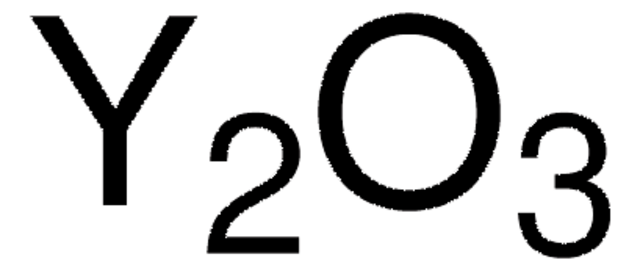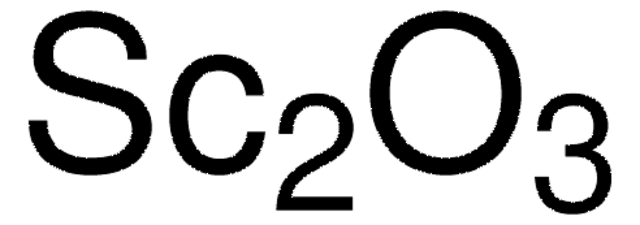202975
Cerium(IV) oxide
powder, 99.995% trace metals basis
Synonym(s):
Ceric oxide, Ceric oxide, ceria
About This Item
Recommended Products
Quality Level
Assay
99.995% trace metals basis
form
powder
reaction suitability
reagent type: catalyst
core: cerium
greener alternative product characteristics
Design for Energy Efficiency
Learn more about the Principles of Green Chemistry.
sustainability
Greener Alternative Product
density
7.13 g/mL at 25 °C (lit.)
greener alternative category
SMILES string
O=[Ce]=O
InChI
1S/Ce.2O
InChI key
CETPSERCERDGAM-UHFFFAOYSA-N
Looking for similar products? Visit Product Comparison Guide
General description
Application
Storage Class Code
13 - Non Combustible Solids
WGK
WGK 1
Flash Point(F)
Not applicable
Flash Point(C)
Not applicable
Personal Protective Equipment
Choose from one of the most recent versions:
Already Own This Product?
Find documentation for the products that you have recently purchased in the Document Library.
Articles
As with all types of fuel cells, a Solid Oxide Fuel Cell (SOFC) is capable of efficiently transforming chemical energy into electrical energy.
White solid-state light can be generated using three different approaches: By employing three diodes that emit red, green and blue light respectively, by using a near-UV LED that excites several phosphors that emit over the complete spectral range, or the third, most widely used alternative entailing down-conversion of a portion of blue LED light to longer wavelengths in such a manner that white light emerges.
Spectral conversion for solar cells is an emerging concept in the field of photovoltaics, and it has the potential to increase significantly the efficiency of solar cells. Lanthanide ions are ideal candidates for spectral conversion, due to their high luminescence efficiencies and rich energy level structure that allows for great flexibility in the upconversion and downconversion of photons in a wide spectral region (NIR-VIS-UV).
Rechargeable solid-state batteries are becoming increasingly important due to wide-spread use in computers, portable electronics, and vehicular applications.
Global Trade Item Number
| SKU | GTIN |
|---|---|
| 202975-50G | 4061838110893 |
| 202975-10G | 4061838765451 |
Our team of scientists has experience in all areas of research including Life Science, Material Science, Chemical Synthesis, Chromatography, Analytical and many others.
Contact Technical Service





